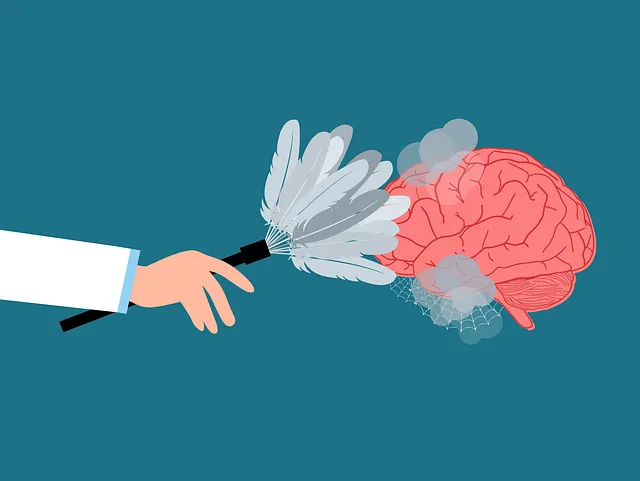Louisville Kaiser Permanente behavioral health providers are experts in crisis intervention, offering immediate support using active listening, empathy, and evidence-based techniques tailored to individual needs. They integrate strategies from Mental Wellness Journaling Exercise Guidance and Trauma Support Services for comprehensive care addressing physical and emotional aspects of crises. By meticulously assessing situations, enhancing self-care routines, and employing strategic approaches including Mind Over Matter Principles and cultural competency training, they provide short-term support while fostering resilience. Continuous post-crisis support through regular check-ins, community outreach, and compassion cultivation practices ensures long-term well-being for Louisville Kaiser Permanente behavioral health providers' clients.
“In times of crisis, effective intervention strategies are paramount for Louisville Kaiser Permanente behavioral health providers. This comprehensive guide offers a structured approach to managing acute situations, focusing on assessment, immediate support, and long-term prevention. By understanding key risk factors and early warning signs, healthcare professionals can implement evidence-based interventions for short-term relief. The article delves into these strategies, ensuring Louisville Kaiser Permanente behavioral health providers are equipped to navigate crises successfully.”
- Understanding Crisis Intervention: A Brief Overview for Louisville Kaiser Permanente Behavioral Health Providers
- Assessing the Situation: Identifying Risk Factors and Early Warning Signs
- Implementing Effective Interventions: Strategies for Short-Term Support
- Follow-Up Care and Prevention: Ensuring Long-Term Well-being
Understanding Crisis Intervention: A Brief Overview for Louisville Kaiser Permanente Behavioral Health Providers

Crisis intervention is a critical skill set for Louisville Kaiser Permanente behavioral health providers. It involves providing immediate, targeted support to individuals experiencing acute distress or a traumatic event. This short-term assistance aims to stabilize the person and prevent further deterioration or dangerous behaviors. Effective crisis intervention requires a blend of active listening, empathy, and evidence-based techniques tailored to the individual’s needs.
For Louisville Kaiser Permanente behavioral health providers, understanding the nuances of crisis intervention is essential for enhancing patient care. By integrating strategies from Mental Wellness Journaling Exercise Guidance and Trauma Support Services into their practice, providers can offer comprehensive support that addresses the physical and emotional aspects of a crisis. Additionally, contributing to public awareness campaigns development can further equip both professionals and the community with the knowledge and resources needed to recognize and respond to mental health crises effectively.
Assessing the Situation: Identifying Risk Factors and Early Warning Signs

When it comes to crisis intervention, the first step is a meticulous assessment of the situation by Louisville Kaiser Permanente behavioral health providers. This involves identifying both risk factors and early warning signs, which are crucial indicators that someone might be in distress or at an elevated risk of harm. By proactively recognizing these signs, healthcare providers can offer timely support and interventions.
Risk factors can include a history of mental health issues, substance abuse, trauma, or recent life stressors. Early warning signs may manifest as sudden changes in behavior, such as withdrawal from social activities, extreme mood swings, or expressions of hopelessness. Enhancing self-care routines and incorporating self-awareness exercises can help individuals build emotional intelligence, making them more adept at recognizing these signs not only in themselves but also in others.
Implementing Effective Interventions: Strategies for Short-Term Support

When it comes to crisis intervention, providing short-term support is a critical component in helping individuals navigate through challenging situations. Louisville Kaiser Permanente behavioral health providers employ various strategies to ensure effective interventions. One key approach involves utilizing Mind Over Matter Principles, which focus on empowering individuals to reframe their perspective and gain control over their thoughts during stressful times. These principles encourage cognitive reframing, promoting a sense of resilience and coping mechanisms that can be applied immediately.
Additionally, the integration of Healthcare Provider Cultural Competency Training is essential in delivering tailored support. By understanding cultural nuances and diversities within their community, Louisville Kaiser Permanente’s behavioral health providers can offer sensitive and effective interventions. This training equips them with the skills to create a safe space for individuals from different backgrounds, fostering open communication and ensuring that short-term support translates into meaningful long-term care. Compassion cultivation practices also play a significant role, allowing providers to build strong therapeutic alliances, which are crucial in crisis situations.
Follow-Up Care and Prevention: Ensuring Long-Term Well-being

After an initial crisis intervention, following-up with individuals to ensure their long-term well-being is a crucial aspect of Louisville Kaiser Permanente behavioral health providers’ care. This ongoing support can prevent subsequent crises and promote resilience. The process involves regular check-ins, where healthcare professionals assess the individual’s progress, identify any emerging issues, and provide additional resources or adjustments to treatment plans as needed.
Community outreach programs play a significant role in this stage by connecting individuals with local support networks and educational resources. Compassion cultivation practices, encouraged by behavioral health providers, can also help individuals develop coping mechanisms and build a sense of community, which is vital for maintaining mental health and preventing future crises.
For Louisville Kaiser Permanente behavioral health providers, crisis intervention strategies are a cornerstone of comprehensive patient care. By understanding crisis dynamics, assessing risk factors and early warning signs, implementing effective short-term interventions, and ensuring follow-up care with a focus on prevention, these professionals can significantly enhance patient outcomes and foster long-term well-being for the community they serve.






